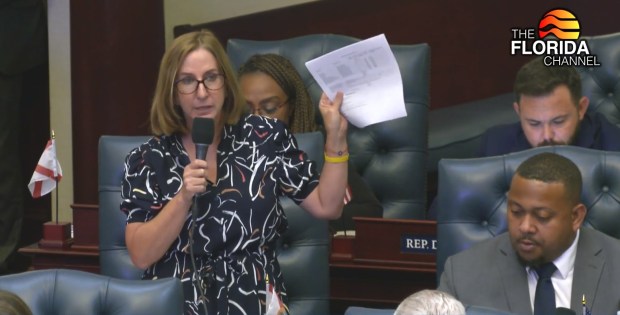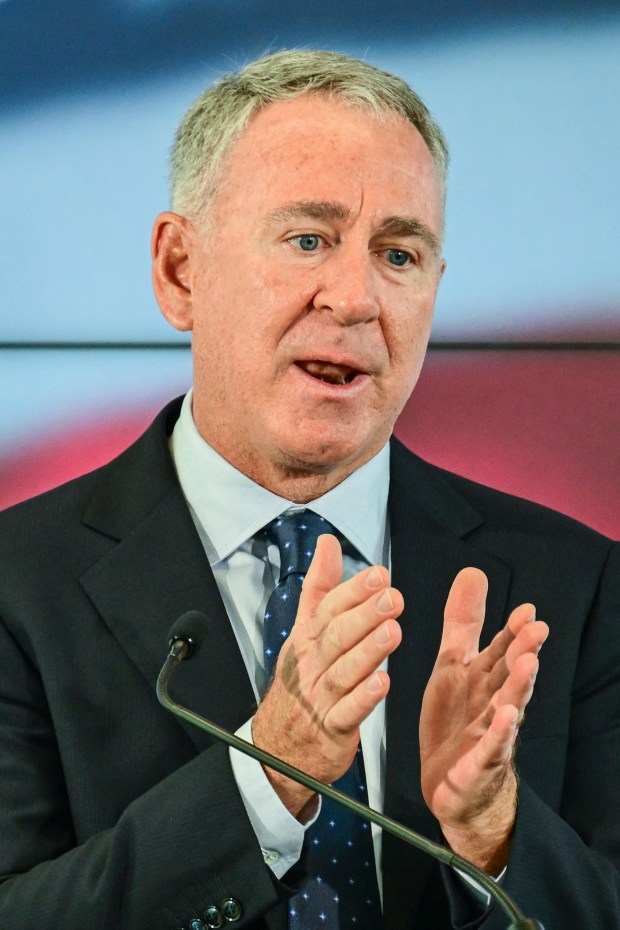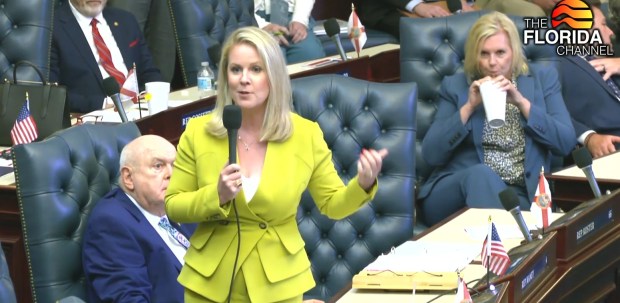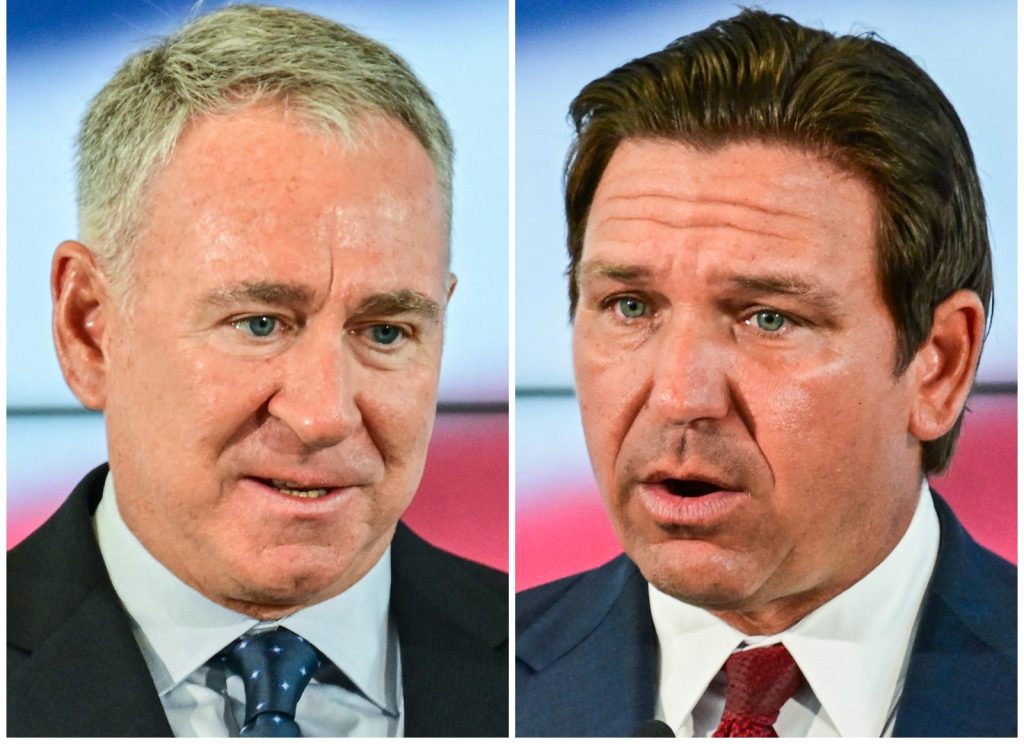A new Florida law allowing select charter school operators to set up their programs within the walls of traditional public schools, rent free, is a lesson in power, politics, money — and how the three combine late at night in the state Capitol.
The result got a failing grade from state Rep. Robin Bartleman, a Weston Democrat, former teacher, former assistant principal and mother of a teacher.
“I was crushed,” she said in an interview. “I am crushed.”
It wasn’t just the policy outcome, with which Bartleman vehemently disagrees. It was the way that legislation widely believed to be moribund was suddenly resurrected.
What Bartleman and legislative allies described as sweeping changes to the law governing charter schools, resulting in a major impact on traditional public schools, was pushed through late at night on the last day of the annual Florida legislative session.
“It was a last-minute switcheroo. We on the House side (of the Capitol) definitely under the impression it was done, it was over, it wasn’t going anywhere. It had been defeated. It came back as a surprise,” said state Rep. Kelly Skidmore of Palm Beach County, the House Democratic policy chair. “We were like what the hell, where is this coming from at the last minute?”
Skidmore, Bartleman and other Democratic senators and representatives, traditionally allied with teacher unions and traditional public schools, argued against both the way the legislation was advanced, and the policies it contained.
“I urge everyone to vote ‘no’ on this. Send it back and let’s work on language and really work on the schools that need help,” Bartleman said during the final House debate, late at night on the last day of the session. “This is a sin. Please vote ‘no.’”
The Republican majority, long supportive of private-sector alternatives to public schools and allied against teacher unions, was unmoved.
The bill passed overwhelmingly.
Provisions
There were multiple provisions of the last-minute legislation. Most controversial were the elements that involved schools of hope, a subset of charter schools.
Schools of hope were established by the state in 2017 to provide alternatives to students in areas with persistently low-performing schools or in opportunity zones, which are economically distressed areas.
The 2025 legislation changed the definition of “persistently low-performing schools,” vastly expanding the number. It also allows schools of hope outside of opportunity zones in some cases. More money was allocated. State universities or colleges (whose boards are appointed by the governor) can now sponsor a school of hope instead of school boards (whose members are elected by voters in each county).
One of the most controversial elements was a requirement that school districts allow schools of hope to co-locate in the same place as a traditional public school where there are underused, vacant or surplus school facilities.
The school districts are required to provide janitorial, cafeteria and other services to the schools of hope — at no charge.
Gov. Ron DeSantis signed the measure into law on June 30. The DeSantis-appointed state Board of Education passed implementing regulations on Sept. 24.
Charter school operators jumped on the opportunity within weeks.
Success Academy
A widely renowned charter-school operator from New York City announced Sept. 25 — the day after the Board of Education implemented its regulations — its plan to launch a presence in Florida.
Success Academy’s plans were announced in Miami by DeSantis, Success founder and CEO Eva Moskowitz, and Ken Griffin, founder and CEO of the global investment company Citadel. Griffin donated $50 million to Success Academy’s Florida undertaking.
The Miami schools, projected to start operating in the 2027-2028 school year, are just the beginning, DeSantis said.
“She’s not going somewhere to do just one school,” DeSantis said of Moskowitz, CEO of Success. “We believe that there’s going to be a lot of places around Florida where this approach can make a meaningful difference in the lives of the students and so I think Miami is Step One.
“I absolutely would envision that you will be seeing Broward. You will be seeing West Palm. You’ll be seeing Orlando and some of these places. I think that that’s very likely. I think that’s their model. I think that that’s their intention.”
DeSantis said the new law, passed at the last minute, was an essential component for Success Academy’s future in Florida. “They have an ecosystem in place with the legislation I signed where that can be done.”
Mater Acadamy
Another charter operator, Mater Academy, wrote to multiple school districts in the state about two weeks after the state Board of Education adopted the rules implementing the new law.
Mater identified facilities that meet the official criteria of underutilized. Using a provision of the new law, Mater said it wants to co-locate schools of hope in buildings that already house existing, traditional public schools.
 State Rep. Robin Bartleman of Weston, a former member of the Broward School Board, argues against proposed changes in state law allowing schools of hope charter schools to co-locate in traditional public schools late at night on the last day of the legislative session on June 16, 2025. (The Florida Channel/courtesy)
State Rep. Robin Bartleman of Weston, a former member of the Broward School Board, argues against proposed changes in state law allowing schools of hope charter schools to co-locate in traditional public schools late at night on the last day of the legislative session on June 16, 2025. (The Florida Channel/courtesy)
Legislative process
Lawmaking often isn’t simple and transparent, the way many people might imagine based on what they learned in school.
Reality, in this case, was complex, according to legislative records, video of proceedings in the House and Senate, and interviews with half a dozen people involved in the process, including lawmakers and lobbyists on both sides of the issue and both political parties. “]
Legislation on schools of hope passed the state House of Representatives, but stalled in the Senate. When the annual legislative session was originally scheduled to end, in May, the schools of hope bill was formally withdrawn. Many lawmakers and lobbyists said they believed that was the end of the idea, at least for 2025.
They were wrong.
The Legislature reconvened in June to adopt the state budget that had been delayed by a monthslong feud between DeSantis and House Speaker Daniel Perez, a Miami-Dade County Republican. Lawmakers also had to pass legislation implementing some of the provisions of the budget.
One bill included the suddenly revived schools of hope legislation. Two days later — 45 days after the Legislature was supposed to finish its work — Senate Bill 2510 received final approval from the House and Senate. Opponents were able to raise questions, but by that point of the session couldn’t offer amendments to change the bill.
“This was very much done in secrecy, and it was a bomb that was dropped,” Skidmore said. “Somewhere the powers that be got in a room and did some trading.”
The leaders, along with appropriations chairs, “are the people making the final decisions on the last day of session. It is their prerogative,” Skidmore said. “They’re fully in charge of their chambers.”
A major change doesn’t get enacted this way without the blessing of the House speaker and the Senate president, said Skidmore, who has been a legislative aide and is now in her second stint as an elected lawmaker, and Senate Democratic Leader Lori Berman of Palm Beach County.
“Absolutely, there’s no other way that you would get something like this to be discussed at the very end of session,” Berman said.
And, Berman said, it had changed from its earlier incarnation. “At the very end, toward the last days of session, it came back, and the way it came back was even broader than we were worried about.”
Representatives of the Senate president, House speaker, the chief House sponsor of the original legislation and the chief House sponsor of the version as it eventually passed, all Republicans, did not respond to requests for comment. Aides to two cited busy schedules.
Speaking last month at the Success Academy announcement in Miami, DeSantis acknowledged the late-session push to get legislation passed. “I know we had to work hard, kind of in the extra innings of the legislative session, and were going back and forth and we got it done because I knew it was important and so we were happy to lean in on that.”
A billionaire’s gift
Ken Griffin is a longtime supporter of Success Academy, which operates in New York City. Education is one of the main priorities of his civic engagement initiative, Griffin Catalyst.
 Citadel CEO Ken Griffin speaks during a news conference at Florida International University on Sept. 25, 2025. Griffin announced he would donate $50 million to help Success Academy of New York City open charter schools in Florida. (Giorgio Viera/AFP via Getty Images)
Citadel CEO Ken Griffin speaks during a news conference at Florida International University on Sept. 25, 2025. Griffin announced he would donate $50 million to help Success Academy of New York City open charter schools in Florida. (Giorgio Viera/AFP via Getty Images)
Since he and Citadel moved from Chicago to Florida in 2022, Griffin has become a prominent donor to philanthropic causes and to Florida Republicans.
Campaign disclosures, first reported by the Seeking Rents investigative news site, showed Griffin made $28.47 million in political contributions in Florida in 2024.
His largest contribution was $12 million to Keep Florida Clean Keep, a political operation formed to support one of DeSantis’ top causes last year: defeating the referendum to legalize recreational marijuana in Florida.
Records show Griffin also gave $7 million to the Republican Party of Florida, $4 million to the state House Republican Campaign Committee (controlled by Perez), and $4 million to the Florida Republican Senatorial Campaign Committee (controlled by Senate President Ben Albritton).
Griffin also was an early supporter of DeSantis’ unsuccessful candidacy for the 2024 Republican presidential nomination.
Seeking Rents, citing documents, said the legislation passed “at least in part, at the behest of Ken Griffin, the billionaire investor and Republican megadonor in Miami, and Success Academy, a prominent charter school system in New York City….
“Lobbyists for Griffin and Success Academy engaged in an extensive, behind-the-scenes lobbying campaign for the privatization legislation, according to emails obtained through a series of public records requests,” Seeking Rents reported. “Success Academy wrote an initial draft of the legislation. Griffin’s team gathered intel.”
A representative for Griffin provided extensive background about his support for Success Academy, but did not respond to a question about Seeking Rents’ reporting.
Others wondered about it as well. During Senate debate on the last night of the session, Sen. Tracie Davis, a Duval County Democrat — who described the measure as “legislation that had died and now it has life again” — directed a two-part question to the sponsor in that chamber, Sen. Ed Hooper, the Republican chair of the Appropriations Committee. “Maybe you have heard, maybe you have not heard of Success Academy and the gentleman by the name of Ken Griffin,” she said.
Hooper’s response: “The answer to the first part of your question is no.”
Andrew Spar, president of the Florida Education Association teachers union, said major donors have the ability to get what they want from the Legislature. “The way our Legislature often operates is money has more influence,” Spar said.
The union was more direct in a social media post offering its version of how events transpired, starting with “Billionaire with Ties to Corporate Charter School network Success Academy Donates Millions to Political Campaigns,” which the union said led to the writing and passing of the legislation.
 State Rep. Jenna Persons-Mulicka, R-Fort Myers, chair of the PreK-12 Budget Subcommittee, argues in favor of legislation changing regulations governing Schools of Hope in Florida, a kind of charter school program, on the last night of the annual state legislative session on June 16, 2025. (The Florida Channel/courtesy)
State Rep. Jenna Persons-Mulicka, R-Fort Myers, chair of the PreK-12 Budget Subcommittee, argues in favor of legislation changing regulations governing Schools of Hope in Florida, a kind of charter school program, on the last night of the annual state legislative session on June 16, 2025. (The Florida Channel/courtesy)
The new law
Perhaps the most contentious element was the requirement that the traditional public schools provide space and related services, such as custodians and the cafeteria, without charging the schools of hope.
When Sen. Rosalind Osgood, a Broward Democrat and former School Board member, asked during the Senate debate if there were circumstances in which “the traditional public school (is) now subsidizing the operations of the schools of hope?” Hooper, the Senate appropriations chair, said “yes.”
“There is $0 in rent,” Berman said in an interview, even if a school of hope conducts classes year-round, forcing the traditional public school to provide services in the summer. “There are just so many different problems that could arise.”
State Rep. Jenna Persons-Mulicka, R-Fort Myers, chair of the PreK-12 Budget Subcommittee, argued in favor of the legislation in the House and downplayed that prospect. She said traditional public schools where schools of hope co-located would be able to keep some of their capital facilities money they’d otherwise have to turn over to a charter school operating off-site.
“Why not permit an operator to come in and use a public facility paid for by public taxpayer dollars to teach our kiddos, especially those kiddos who have been in persistently low performing schools?” Persons-Mulicka said.
DeSantis, Griffin and Success Academy were clearly happy with the results.
A Success Academy statement on the day of its announcement said that “Florida’s innovative new legislation will have a far-reaching impact in improving learning quality and excellence by removing the largest obstacles to the expansion of high-quality schools serving poor kids and incentivizing exceptional performance.”
Moskowitz, the Success CEO, said at the announcement that she had been looking at three states: Florida, Tennessee and Texas. “And Florida, frankly, was welcoming and embracing of innovation and a desire to solve this problem.” She said the appeal of working in a state that has put out a welcome mat for her charter school approach combined with Griffin’s gift made it “kind of a no-brainer to come here.”
Griffin said the Success Academy approach would help transform the lives of Florida children. “And what makes it such an important part of my focus here in Florida is I’ve got the support of the governor and the Legislature behind this idea.”
Political writer Anthony Man can be reached at aman@sunsentinel.com and can be found @browardpolitics on Bluesky, Threads, Facebook and Mastodon.

